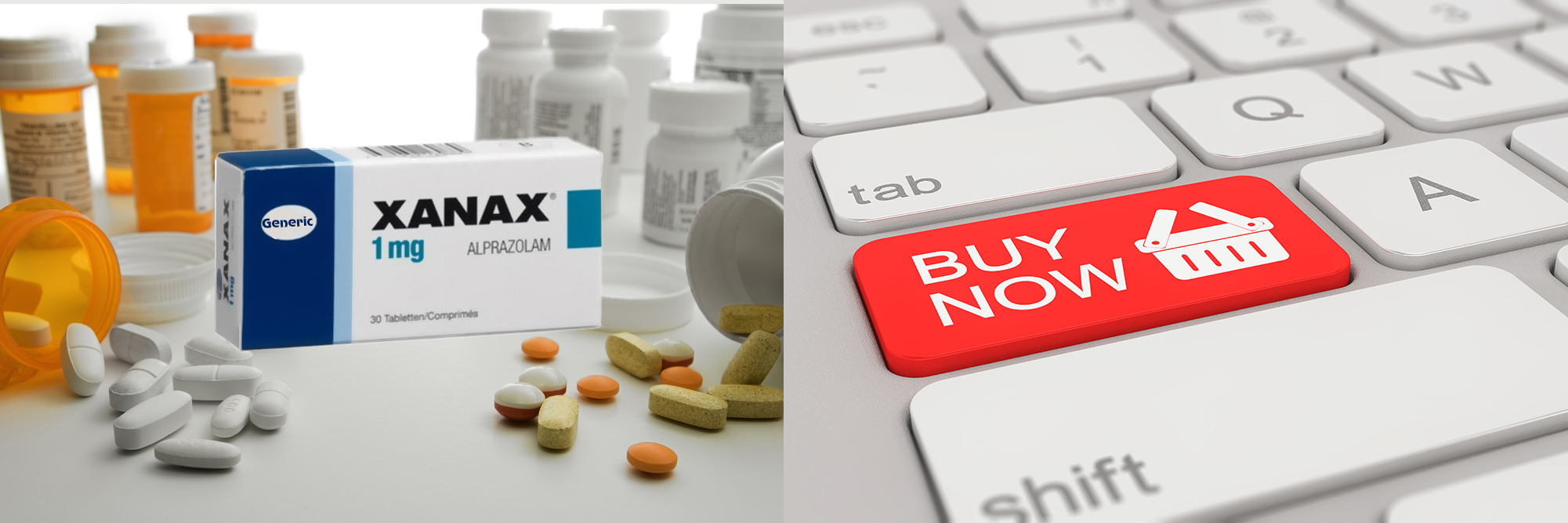Best Offers to Buy Xanax (Alprazolam) Without Prescription

Xanax (Alprazolam)
Xanax is a pharmaceutical employed in addressing conditions such as anxiety, panic attacks, generalized anxiety disorder (GAD), and social anxiety disorder (SAD). Anxiety can arise from diverse medical and environmental triggers. Xanax, the brand name for Alprazolam, falls under the category of short-acting anxiolytics within the benzodiazepine group.
Esteemed for its efficacy, Xanax is often recommended by medical professionals as a prime option for managing anxiety. This medication boasts sedative, hypnotic, anxiolytic, myorelaxant, and anti-epileptic properties. Its effectiveness led to its FDA approval in 1981. However, given the limited knowledge about the safety and effectiveness of the drug in individuals under the age of 18, its usage is exclusively intended for adults.
The Mechanism of Alprazolam in Anxiety Treatment
Alprazolam operates by modulating brain chemicals that might be imbalanced in individuals experiencing anxiety. It exerts a depressant effect on the central nervous system (CNS). This results in a reduction of abnormal brain activity, yielding a calming influence. The medication binds to gamma-aminobutyric acid (GABA) receptors within the CNS, heightening their activity and diminishing overall brain excitability. Despite boasting a half-life of approximately 11 hours, its maximal effect is typically realized around 2 hours post-administration.
Dosage Instructions
Xanax is accessible in both compressed pill and extended-release formulations. The pill can be divided into two parts as per medical advice. The compressed pill variant comes in a range of dosages (from 0.25 to 2mg), whereas extended-release tablets are available in dosages ranging from 0.5 to 3mg.
Additionally, Xanax is offered in the form of an oral solution (0.5mg/5ml and 1mg per 1ml of oral solution). The appropriate Xanax dosage is contingent on factors such as age, medical history, and concurrent ailments. For elderly individuals and those with compromised liver function, dosage reduction is recommended.
Guidelines for Xanax (Alprazolam) Usage
- Xanax should be taken strictly following the doctor's directives.
- Administration of Xanax is not contingent on mealtime.
- Xanax should be taken 2-4 times daily, whereas extended-release tablets should be taken once daily with water (preferably in the morning).
- Refrain from using Xanax beyond the necessary duration or altering the prescribed dosage.
- Thoroughly read the information leaflet before commencing treatment.
- To achieve optimal efficacy, consume Xanax at the same time daily.
- The oral solution of Xanax should not be utilized after three months from the initiation date.
Xanax's Undesirable Effects
Similar to other medications, Xanax (Alprazolam) can potentially induce adverse effects, such as impaired speech, emotional emptiness, visual disturbances, hives, decreased appetite, difficulty focusing, sleep disruptions, and fatigue. The occurrence of these adverse effects can be influenced by factors including alterations in dosage and treatment duration. However, adherence to the doctor's instructions and proper administration of Xanax can mitigate these effects.
Interactions with Other Medications
Xanax (Alprazolam) can interact with the following medications:
- Tricyclic antidepressants (e.g., Imipramine)
- Antifungal drugs (such as Ketoconazole)
- Antibiotics (e.g., Erythromycin and Clarithromycin)
- Antiepileptic drugs (e.g., Carbamazepine)
- Contraceptive pills
- Analgesics
- HIV/AIDS medications (including Sustiva and Atripla)
- Protease inhibitors (e.g., Ritonavir)
- Neuroleptics (including Thorazine, Clozaril, Haldol, etc.)
- Medications for insomnia (e.g., Ambien and Lunesta)
- Other anxiolytic medications (such as Klonopin, Valium, and Ativan)
- Methadone
A Few of Our Trusted Clients













